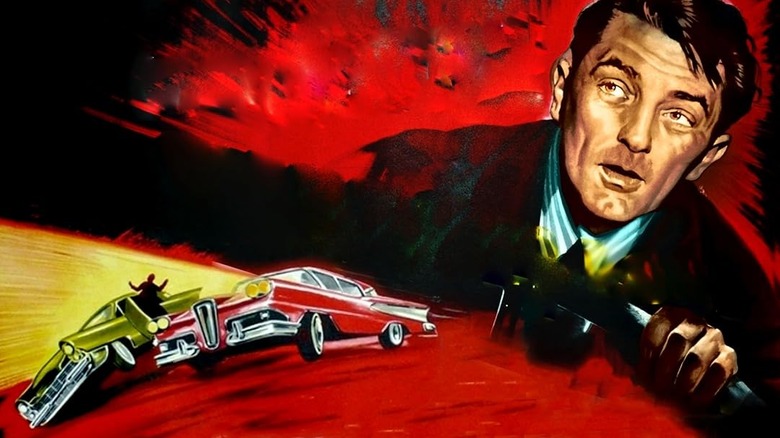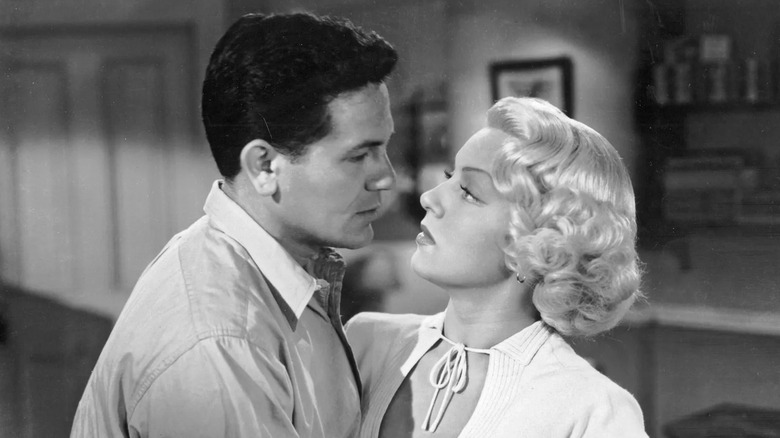
We may receive a commission on purchases made from links.
In his autobiography “Born To Run,” Bruce Springsteen wrote how when he was first struggling as a musician, songwriting was the skill he chose to concentrate on refining. His writing was “the most distinctive thing [he] had going,” he felt back during the early ’70s — as do his legions of fans to this day.
When I listen to Springsteen, I don’t just feel a story being told or a mood being conjured, I feel the characters, as if years of inner life are conveyed in a few minutes. Springsteen’s 1982 song “Atlantic City” is one of the most cinematic I’ve ever heard, with a simple but evocative story (a desperate young man in love turning to crime). The verses of “Atlantic City” escalate the hopelessness, but one coupled with a refrain of possibility in the chorus.
“Well, I got a job and I put my money away but I got debts that no honest man can pay” in the second verse to “Last night I met this guy and I’m gonna do a little favor for him” in the fourth, the boy’s story plays out so crisply before your eyes. With how much his music is rooted in storytelling, it’s no surprise The Boss is a cinephile. My /Film colleague Caroline Madden literally wrote the book on Springsteen and the movies, “Springsteen as Soundtrack: The Sound of the Boss in Film and Television.”
Springsteen has written film themes including “Streets of Philadelphia” and “The Wrestler,” and co-directed (with Thom Zimny) the 2019 concert film named after and showcasing his 19th album, “Western Stars.” He’s about to be a movie star in a different way because Jeremy Allen White has been cast to play Springsteen in “Deliver Me From Nowhere,” about the making of his sixth album “Nebraska.”
Showing his movie lover cred, Springsteen has also guest-starred on Turner Classic Movies in 2019, introducing a double bill of “The Searchers” and “A Face In The Crowd” with Ben Mankiewicz. (But he still won’t cameo on “The Simpsons.”) Some of his other favorites, as reported by IndieWire, range from ’40s noirs to ’70s B-thrillers: “The Grapes of Wrath” to “Double Indemnity” to “Rolling Thunder” to more.
The stories of these films are similar to the ones Springsteen explores in his songs, so his loving them reflects what compels his own voice and reveals another ingredient in his influences.
Springsteen’s Thunder Road shares the title of a Robert Mitchum picture
The “humanism” in “Grapes of Wrath” is one of the key feelings that Springsteen tries (and invariably succeeds in) to capture in his music, he said at the 2017 Tribeca film festival. “Rolling Thunder” is about a Vietnam War veteran who comes home and can’t readjust, just like Springsteen’s often misinterpreted “Born In The U.S.A.” In 2017 he said “Born To Run” was inspired both by watching cars race in his hometown of Asbury Park and “every B-hotrod picture.”
“Born To Run” was Springsteen’s second and breakthrough album, and opens with another song about driving and yearning: “Thunder Road.” That song has the exact same title as a 1958 Robert Mitchum picture. Mitchum, the coolest (and highly in-demand) movie star of the time, plays Lucas Doolin, a bootlegger in the American South. Amusingly enough, Springsteen was less of a die-hard fan than that suggests; he had only seen the poster for “Thunder Road” when he wrote his own, so the song isn’t based on the movie so much as what the poster made him imagine.
“Thunder Road” doesn’t have much in common with the movie; unlike the Appalachian mountains in the movie, Springsteen is a Jersey boy to the core, and the settings of his song evoke that. But, perhaps since both song and movie share a driving motif, there’s a common theme of wishing for a better life. In Mitchum’s “Born To Run,” Lucas wants that for his brother (played by Mitchum’s own son James), while the singer in Springsteen’s song is encouraging his lover to take the ride towards freedom with him.
“Born to Run” and “Thunder Road” complement each other; they’re both about young-but-not-forever couples trying to escape and see what the road will bring them. In turn, both songs use the physical setting of an open road to evoke the characters’ feelings: urgent desperation to find someplace else because that someplace has to be better than here.
Bruce Springsteen loves film noir
Speaking of, many of Springsteen’s songs are about doomed lovers, or at least lovers doomed to unfulfillment. “Born To Run,” “Thunder Road,” and also “The River,” eponymous song from Springsteen’s 1980 album no. 5. It’s a Flannery O’Connor-flavored melancholy about a working-class couple, where any of the youthful hopes found in “Born To Run” have vanished.
Do you remember “Blue Valentine,” starring Ryan Gosling and Michelle Williams as a middle-aged couple Dean and Cindy, whose love is dead and marriage will soon follow? I associate that movie more with “The River” than I do Tom Waits’ album “Blue Valentine.” Crazy, right? Not if you listen to the early verses, I find:
“For my 19th birthday I got a union card and a wedding coat
We went down to the courthouse, and the judge put it all to rest,
No wedding day smiles, no walk down the aisle,
No flowers, no wedding dress.”
What puts these songs in a new context for me is that Springsteen is a fan of writer James M. Cain and the classic noir films based on his novels, “Double Indemnity” and “The Postman Always Rings Twice.” These stories are two of a kind, as both are about an adulterous couple scheming to kill the woman’s husband to be freer and richer than before. Springsteen’s lovers don’t resort to murder (except in “Atlantic City”), but they are dreamers beaten down by life, and still trying to get ahead of their meager circumstances, who come up short.
Then the opening lyrics of “The River” say the narrator’s fate was sealed from birth:
“I come from down in the valley,
Where, mister, when you’re young,
They bring you up to do like your daddy done.”
To quote another Bruce song, “You’re born into this life paying for the sins of someone else’s past.” His songs, and many of the movies he loves, explore how people live with the burden of that payment.




Leave a Reply